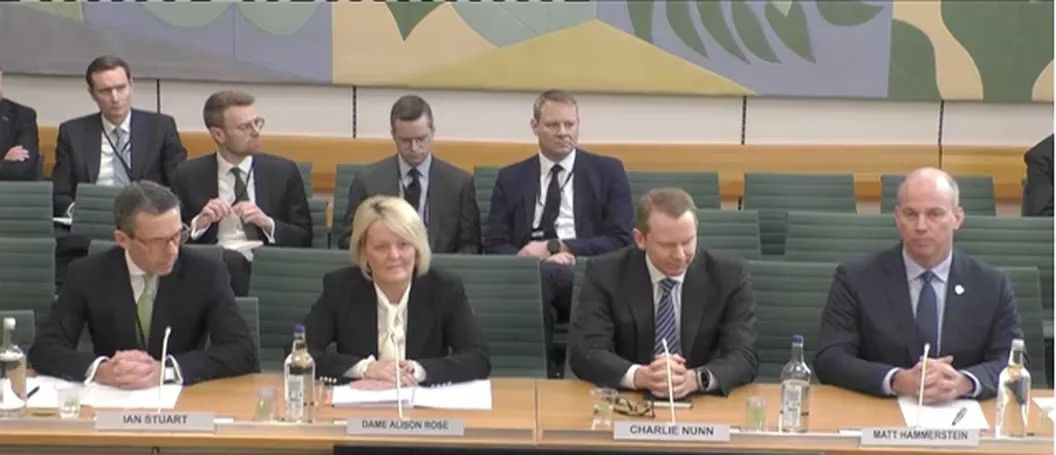Bank bosses in the U.K. are blocking customers’ access to cryptoassets due to concerns over fraud and volatility
Finance CEOs welcomed new crypto regulations but were wary about the risks of a central bank digital currency

Bank bosses in the U.K. are blocking customers’ access to cryptoassets due to concerns over fraud and volatility, lawmakers were told today.
Social media and technology platforms were cited as a significant source of fraud, but executives told the Treasury Select Committee that new regulations could boost confidence.
“We have taken a pretty hard line as a bank on crypto,” Alison rose, Chief Executive Officer of NatWest Group, told the House of Commons committee. “We're blocking retail and wealth customers from transferring into crypto assets because of the volatility and the stability of the platform.”
“We look at it through a fraud perspective,” Rose added. “We know that can cause frustration for customers because they may want to invest – it's their money – but if we're evidencing significant fraud we block them.”
“We do need to stop it at root cause,” Rose said, citing statistics showing that, for 60% of customers who were victims, the fraud originated on social media or technology platforms.
Other executives questioned by the committee were also skeptical about crypto, but saw potential in new rules proposed for the sector by the U.K. Treasury last week.
“We're very supportive of the regulation and the regulators looking at regulation of crypto, our focus will always be about customer outcomes in that context,” said Charlie Nunn, CEO of Lloyds Bank. “I don't think Lloyds Banking Group will want to be promoting cryptocurrencies, but we do want to make sure that, if our customers choose to put money into cryptocurrencies, it's as safe as can be.”
Bank bosses appeared more skeptical about the potential benefits of a central bank digital currency – the day after the Treasury and Bank of England said a digital pound was likely to be needed, and with more details set to be published imminently.
“The most significant potential benefit is actually some reformation in the way in which the plumbing infrastructure works around payments to simplify and modernize,” said Matt Hammerstein, CEO of Barclays, but said there was a risk of a “two tier payment system” with those who kept using cash, and of creating a bank run if people hoard digital money.
2 comments